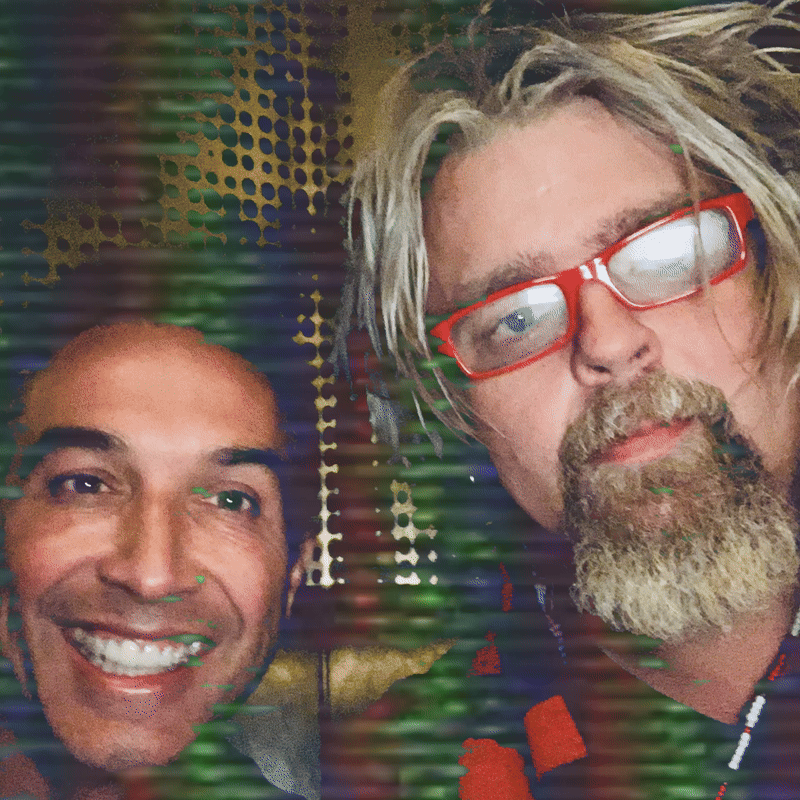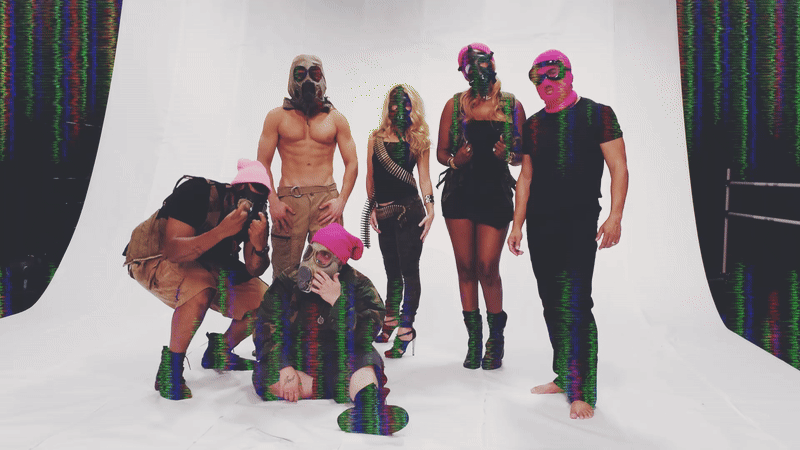The $10 Million AI Music Fraud Case: Bots, Billions, and No Fans
In the cutthroat world of music, hitting it big is a statistical anomaly. The odds are so stacked against aspiring artists that success often feels like a criminal act itself. Yet, for a brief, shining moment on a late spring evening in Louisville, Kentucky, two musicians, Mike Smith and Jonathan Hay, felt they were on the cusp of that rare breakthrough. Smith, a man of meticulously maintained physique and suburban success, played guitar. Hay, larger, softer, and more bohemian, handled the drum machine and keyboard. They were in Hay’s living room, surrounded by instruments and production gear, pouring their hopes into their debut jazz album.
It was 2017, and the two men, both in their forties, were seasoned collaborators despite their contrasting personalities. Smith, a medical clinic owner with a reality TV judging stint and a self-help book under his belt, lived a seemingly conventional life with his wife and six children in Charlotte, North Carolina. Hay, on the other hand, resided in an apartment, dated a stripper, and embraced a more unconventional lifestyle, complete with recent sleeve tattoos and a fondness for cannabis, which he discreetly indulged to avoid offending his health-conscious partner.

Photograph: Jonathan Hay; Getty Images
Their album, simply titled Jazz, was released that fall across major streaming platforms like Spotify, Apple Music, and Tidal, alongside a physical release. Despite their previous work together having garnered some attention, Jazz failed to gain traction. Undeterred, Smith and Hay decided to rework the album, adding new tracks for a deluxe version.
Jazz (Deluxe) dropped in January 2018 and, to their elation, it soared up the Billboard chart, hitting the coveted No. 1 spot. Hay was ecstatic, believing their years of effort had finally paid off with tangible success.
But the triumph was short-lived. The following week, the album vanished from the charts entirely. “Nobody drops off the next week to zero,” Hay recalled, bewildered by the sudden disappearance. He reached out to other artists, none of whom had witnessed such a precipitous decline. Questions mounted: If the album had been so popular, why did the listening stop so abruptly? Why was there no buzz online, not even a single tweet? “No one’s talking about the music,” Hay realized with growing unease.
Scrutinizing the analytics on Spotify’s artist dashboard only deepened the mystery. Listeners were heavily concentrated in unexpected locations like Vietnam. Then came the notices from distributors, the companies responsible for licensing independent music. They began flagging Smith and Hay’s music, including tracks from Jazz and other projects, for streaming fraud and removing it from platforms. Smith dismissed it as a mistake, blaming Hay for issues with sample rights. Hay frantically tried to resolve the problem, but the flags persisted.
Panicked, Hay pressed Smith for an explanation. According to Hay, Smith eventually offered a partial truth: he had instructed staff at his medical clinics to stream their songs. Hay suspected this wasn't the whole story.
The Indictment: AI, Bots, and Millions
The full, stunning scope of the situation began to emerge last September when Smith was arrested by the FBI and charged in what is being called the first AI streaming fraud case in the United States. The government alleges that between 2017 and 2024, Smith amassed over $10 million in royalties by deploying bot armies to relentlessly play AI-generated tracks on streaming services. Smith has pleaded not guilty to all charges. (Smith declined to be interviewed through his lawyer, Noell Tin, leaving Hay’s account, corroborated by interviews with others, as the primary narrative source.)
Upon learning of the charges, Hay was struck by the irony of his former partner potentially becoming wealthier than most successful musicians without cultivating a genuine fanbase. “He had a billion streams,” Hay claimed, “and no fans.”

Their relationship began in 2013 when Hay, working as a publicist and offering online PR consultations for $250 a session, was contacted by Smith. Smith “did something really grandiose,” Hay recalled. “He booked like 20 hours.” Smith flew in for the consultation, insisting on meeting at a sports bar – a detail Hay now sees as indicative of Smith’s controlling nature. Hay understood that Smith had made a fortune in medical clinics and was now seeking fame, willing to invest heavily to achieve it. By the end of their first meeting, they had formed a bond: Smith the aspiring star, Hay the starmaker.
They quickly decided to launch a label, SMH Records, and establish themselves as producers and industry players, essentially buying their way in. “Spared no expenses on the budget,” noted B. Stille of the rap group Nappy Roots, who worked with them. One early success was co-producing a single for the group. Smith also financed and became a judge on BET’s One Shot, a reality show seeking rap talent. His presence alongside hip-hop heavyweights like DJ Khaled and T.I., despite his relative anonymity as an artist, was notable, fueled by his financial backing.

Photograph: Sabrina Kelly; Getty Images

Photograph: Sabrina Kelly; Getty Images
Around the time One Shot was in production, Hay began to suspect financial irregularities on Smith’s part. He and another SMH employee investigated, culminating in a 111-page document Hay sent to their business associates in February 2015, accusing Smith of financial mismanagement. Hay envisioned this as his “Jerry Maguire moment,” confident he would expose Smith and rally others to his side. However, his associates saw their relationship with Smith differently.
“Everybody stayed with Mike,” Hay recounted, feeling “really stupid.” People in their professional circle seemed to trust Smith. Rapper Kxng Crooked, a fellow judge on One Shot, described Smith as wholesome, mentioning he had visited Smith’s home and played with his children. Goldy Locks, a musician signed to SMH, reported a “completely positive experience,” stating that Smith was the only label head who had “taken care of us.”
One Shot aired in 2016 for one season, marking a peak for Smith but a low point for Hay. In 2017, Hay and his daughter were held at gunpoint during a home invasion. Smith visited him afterward, a gesture Hay appreciated, which helped mend their strained relationship – temporarily. The release and subsequent mysterious disappearance of their jazz album from the charts reignited Hay’s suspicions.
The Pivot to AI and the Bot Army
In the late 2010s, Smith connected with Alex Mitchell, the CEO of Boomy, an early AI song generator startup. While AI music generators are now more common, allowing users to create music from prompts, they were niche at the time. Smith was ahead of the curve in recognizing the potential, albeit for a different purpose. The government’s indictment describes an unnamed, uncharged co-conspirator fitting Mitchell’s description: a “Chief Executive Officer of an AI music company” who, starting around 2018, provided Smith with “thousands of songs each week.”
According to the indictment, the CEO acknowledged the nature of the output, writing, “Keep in mind what we’re doing musically here ... This is not ‘music,’ it’s ‘instant music’ ;).” Smith allegedly assigned these AI-generated songs to thousands of fake artists with bizarre, dictionary-derived names like “Zygophyceae” and “Zygopteraceae,” credited to equally strange artist monikers such as “Calm Force” and “Calorie Event.”
The indictment further alleges that Smith uploaded this vast library of AI music onto streaming platforms. With the help of contractors, he created thousands of streaming accounts. Using purchased “small pieces of computer code,” Smith was allegedly able to “continuously” play the music on these accounts, effectively building and commanding a custom bot army. These automated plays triggered royalty payments from the streaming services. If the allegations are true, Smith had become a master purveyor of what is increasingly termed “AI slop” – algorithmically manufactured content designed to game digital platforms for financial gain. This phenomenon is seen across various online domains, from robo-books on Amazon to AI-generated content mills, all driven by individuals seeking to exploit flaws in the creator economy.
Hay's Warnings and the Industry's Blind Spot
Hay claims he was unaware of the AI aspect at the time, but his suspicions about their streaming numbers intensified. The conflict between Smith and Hay escalated. In a December 2019 email, Hay directly accused Smith: “You steal from streaming platforms. These are federal crimes, bro.” Smith’s response was to simply resend their legal agreement. Hay alleges Smith cut him out of deals and withheld income, pushing him to a breaking point. Hay wrote another lengthy email to their associates, detailing his suspicions. He also contacted Billboard employees and others in their professional network. This time, Hay says, he was ready to sever ties and blow the whistle, even going to local police and the FBI. “I blew the whistle as loud as I could,” he stated.
Yet, once again, nothing seemed to happen. A Billboard employee reportedly texted Hay that the company would not investigate. (Billboard declined to comment on this specific incident, though a spokesperson for Penske Media Corporation, which owns Billboard, stated they remove inaccurate records when notified in a timely manner. Smith and Hay’s Billboard records reportedly still stand.) Embarrassed, Hay told the Billboard team he had been off his medication, feeling increasingly isolated and questioning his own sanity.
Meanwhile, Smith faced other legal challenges. He was navigating a lawsuit filed by staffers at his medical clinics, who alleged Medicaid and Medicare fraud and claimed Smith was diverting funds from the clinics to SMH Records – a suspicion Hay had also harbored. Smith and his codefendants settled the lawsuit in 2020 for $900,000.
Despite this setback, Smith appeared to rebound by 2022. He produced a song featuring Snoop Dogg and Billy Ray Cyrus and planned ambitious projects, including a horror movie with RZA and an animated series. However, the following year, his public presence waned. He became inactive on Instagram, and the horror movie was released without significant attention. According to the criminal indictment’s timeline, Smith spent time in 2023 attempting to convince streaming industry groups of his legitimacy. A major blow came in spring 2023 when the Mechanical Licensing Collective, a nonprofit collecting and distributing streaming royalties, confronted Smith about fraud and halted payments, cutting off a crucial revenue stream.
On September 4, 2024, federal agents arrived at Smith’s large Colonial Revival home. He was arrested, handcuffed, and led to a navy sprinter van, past his three-car garage, as neighbors watched in confusion.
The Aftermath and Broader Implications
For Jonathan Hay, the arrest was a form of vindication. The indictment portrays “Co-Conspirator 2,” who fits Hay’s description and is not charged, as someone whose work Smith initially used to generate fraudulent royalties before shifting to AI. Others in Smith’s circle expressed surprise. Music promoter Bram Bessoff, listed as a cowriter on hundreds of Smith’s AI songs (and fitting the description of “Co-Conspirator 4” in the indictment, though not charged), told WIRED he was in “total shock” and cooperating with authorities. Boomy CEO Alex Mitchell, also credited on many of the songs, declined to comment. A Boomy spokesperson, Phoebe Myers, stated that neither Mitchell nor Boomy had “any knowledge or involvement in Smith’s alleged criminal conduct,” nor did they engage in or know of Smith’s bot streaming. Myers added that Mitchell had no relationship with Smith’s music publishing company.
The indictment includes an excerpt from an email Smith allegedly sent to his co-conspirators (likely Mitchell and Bessoff), celebrating their alleged success: “We are at 88 million TOTAL STREAMS so far!!!”

Creating a massive volume of AI-generated music and uploading it to streaming services is not inherently illegal, though many might find it tasteless or disrespectful to the art form. It is, in fact, becoming increasingly common. Deezer, a French streaming platform, estimates that 10 percent of daily uploads are AI-generated. Legal issues arise if the AI is trained on copyrighted music without permission, as seen in lawsuits against companies like Suno and Udio. Boomy, however, is certified by Fairly Trained, indicating consent for training data use, suggesting Smith’s alleged scheme wasn't illegal on the creation side.
The illegality stems from the alleged use of bots and fake accounts to generate artificial streams. Major streaming services explicitly prohibit such practices in their terms of service. While a man in Denmark was convicted for using bots on Spotify and Apple Music, most streaming fraud goes unpunished. Morgan Hayduk, co-CEO of Beatdapp, a streaming-fraud-detection startup, estimates the problem costs the industry “conservatively, a billion-dollar-a-year type of problem.” He views the Michael Smith case as just “the tip of the iceberg.”
A 2021 study by France’s National Music Center suggested 1 to 3 percent of streams were fraudulent, while Beatdapp places the number closer to 10 percent. Hayduk notes that some of their clients see 17 to 25 percent of streams flagged as fraudulent, occasionally even half. He sees AI song generators as a “supercharger” for this behavior, enabling fraudsters to create vast libraries of content quickly. He suggests Smith’s alleged method wasn’t particularly sophisticated, noting that organized criminals might operate from locations with no extradition treaties.
It remains unclear which streaming platforms were most affected by Smith’s alleged scheme, likely because companies are reluctant to admit shortcomings in their fraud detection. Spotify claims its measures were effective, limiting Smith’s alleged royalties from their platform to approximately $60,000 out of the total $10 million. Apple, YouTube Music, and Tidal did not respond to inquiries, and Amazon declined to comment on Smith. While distributors and streaming services are engaged in an escalating AI-versus-AI battle to detect fraud, some industry experts argue that the fundamental issue lies in the streaming platforms’ royalty payment structures, suggesting only a complete overhaul can truly curb the problem.
Within certain segments of the music community, Smith is not universally seen as a villain. Many artists feel exploited by streaming platforms and labels. Goldy Locks, his former client, mentioned that some view him as a modern-day Robin Hood. Others see him as a product of an exploitative system, a figure who gamed an environment already rife with questionable practices. The music business has a long history of blurring the lines between genuine audience engagement and manufactured popularity, from radio payola to platforms promoting bulk-produced stock music. Even in the 19th century, “claqueurs” were paid to applaud at operas.
Smith is currently out on bail. His lawyer, Noell Tin, issued a statement describing Smith as “a successful songwriter, musical artist, devoted husband, and father to six children,” adding that he “looks forward to responding to the charges against him in court.” The case is being heard in the US Southern District Court of New York by Judge John Koeltl, known for presiding over significant tech cases. If convicted, Smith faces a potential sentence of up to 60 years in prison.
Regardless of the legal outcome, the case has cemented Michael Smith’s place in the evolving narrative of the music business. The government has positioned him as a symbol of the new opportunities for fraud presented by the AI era. While anyone can now generate a song with a few clicks, building a fortune from these audienceless tracks – if the allegations are true – represents a new frontier, one that is simultaneously a potential crime and, from a certain cynical perspective, a new, albeit fraudulent, form of digital art.
This case highlights the ongoing challenges faced by the music industry in adapting to technological change and the persistent temptation to game the system for profit. As AI becomes more sophisticated, the battle against fraudulent streams and manufactured popularity is likely to become even more complex, requiring platforms, regulators, and artists to grapple with fundamental questions about value, authenticity, and the future of music in the digital age.
The story of Michael Smith and Jonathan Hay, and the alleged $10 million fraud, serves as a stark reminder that while technology can democratize creation, it also opens new avenues for exploitation, leaving the industry to navigate a landscape where billions of streams can exist without a single genuine fan.
For more stories on individuals navigating the edges of the law and technology, explore WIRED's Rogue Nation issue.
